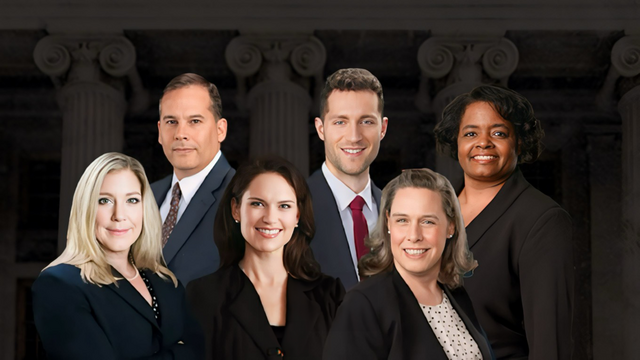Alexandria Tax Fraud Lawyer
As the old saying goes, nothing is more certain than death and taxes. But what happens when we run into trouble with the law as a result of the taxation policies of the United States? If you or someone you know is having legal trouble with the IRS, contact an Alexandria tax fraud lawyer. Criminal tax prosecutions are notoriously complicated and dangerous – convictions could result in hefty fines or lengthy prison sentences.
According to the IRS, prosecutors recommended more than 2744 tax investigations and other financial crimes referrals in the fiscal year of 2016 alone. There were approximately 2699 sentences for tax investigations and other financial crimes as well. If you have been notified of an audit, or believe you will be prosecuted for a tax fraud related matter, an experienced defense lawyer can help you navigate the legal system and prepare a defense to the charges against you.
Fraud Investigations
The United States Department of Justice, Tax Division, is responsible for prosecuting criminal tax fraud cases. Amongst the many crimes they prosecute in addition to tax evasion are:
- Impersonating charitable groups
- Falsely claiming zero wages
- Return preparer fraud
- Stolen identity refund fraud (a form of identity theft)
- Hiding income offshore
- Employment tax enforcement
- Phishing
Regardless of the offense, an Alexandria tax fraud lawyer could work to build a solid defense for an individual.
Defenses to Tax Fraud Allegations
In the United States, criminal defendants are innocent until proven guilty. Defendants enjoy this presumption, in part, because they are severely disadvantaged at trial. The prosecutor is typically the first person the jury hears speak during opening statements and is the last person the jury hears during closing arguments. The prosecutor may have federally trained agents as witnesses and will likely have many years of experience in the tax field prior to trying a case. There are several defenses that defendants have employed to level the playing field in tax prosecution cases, including:
- Statute of Limitations – Certain crimes have a time limit in order to be properly filed. Failure to abide by this strict rule could result in the dismissal of the charge. For instance, the IRS is required to file tax evasion charges within six years pursuant to 26 United States Code § 6531.
- Insufficient Evidence – A simple but effective defense is arguing that the prosecution failed to furnish sufficient evidence, in admissible form, to support a charge under the tax code.
- Lesser Included Offenses – Although not a defense per se, this rule of law states that lesser included offenses are those charges whose elements comprise the elements required to prove a different charge. For instance, failing to file a return could be a lesser included charge of evading taxes. A conviction for the major crime may envelop the lesser offense
- Entrapment – A defendant can put forth an entrapment defense if they can prove that the government induced the commission of a crime and the defendant was not predisposed to the criminal conduct beforehand
- Scienter – Intent is a common element of tax charges. Negating an element of the criminal charge could potentially lead to the dismissal of the charge if the prosecution is unable to satisfy their burden of proof on that element
Contact an Alexandria Tax Fraud Lawyer
If you have been targeted by the IRS or US Department of Justice’s Tax Division, do not try to take on the federal government alone. An Alexandria tax fraud lawyer can help you learn about the law, discuss your options, and form a strategy that best suits your goals. While some serious offenses result in criminal punishments of fines and incarceration, other offenses result in restitution, probation, or community service. If you have questions about your case, call now for a consultation.




